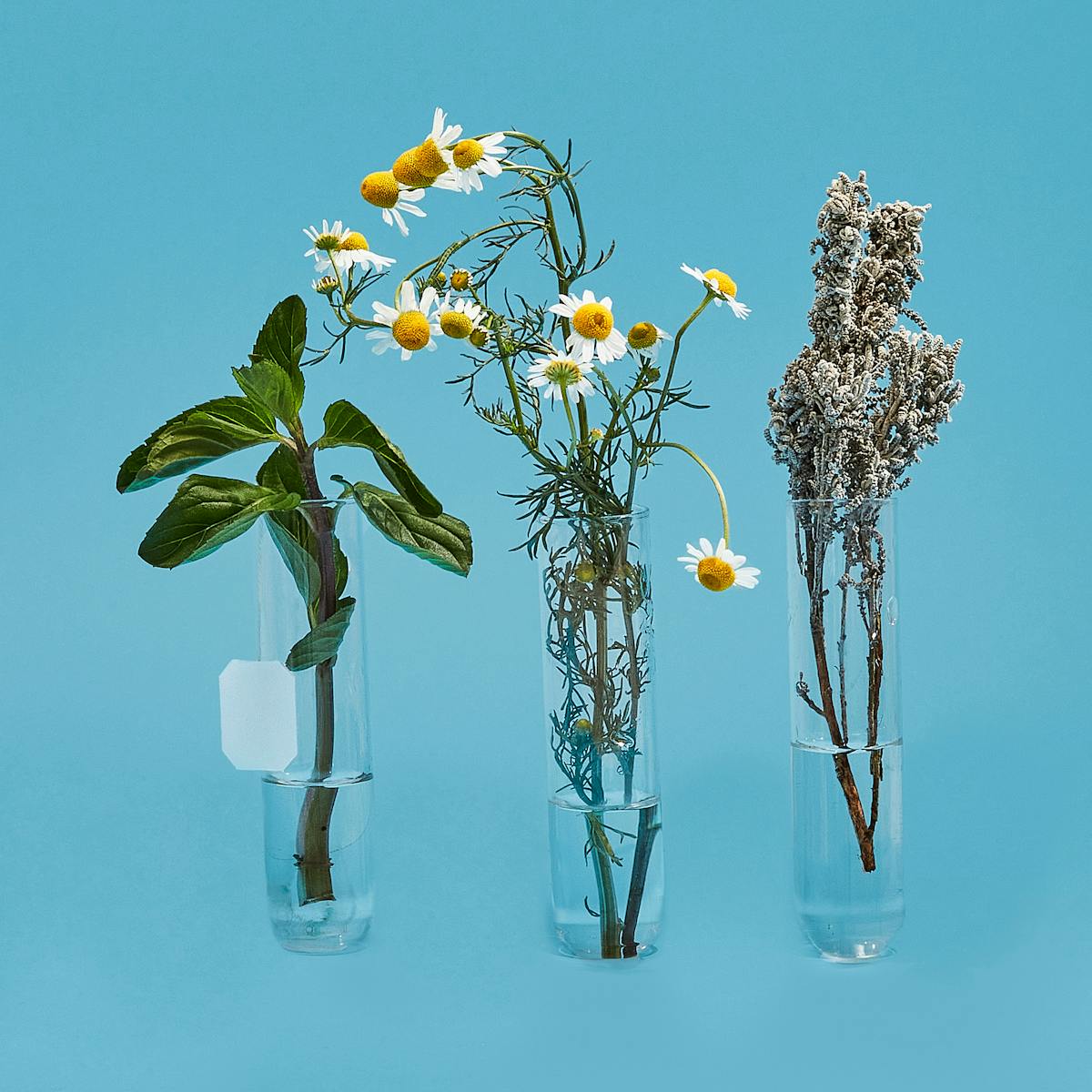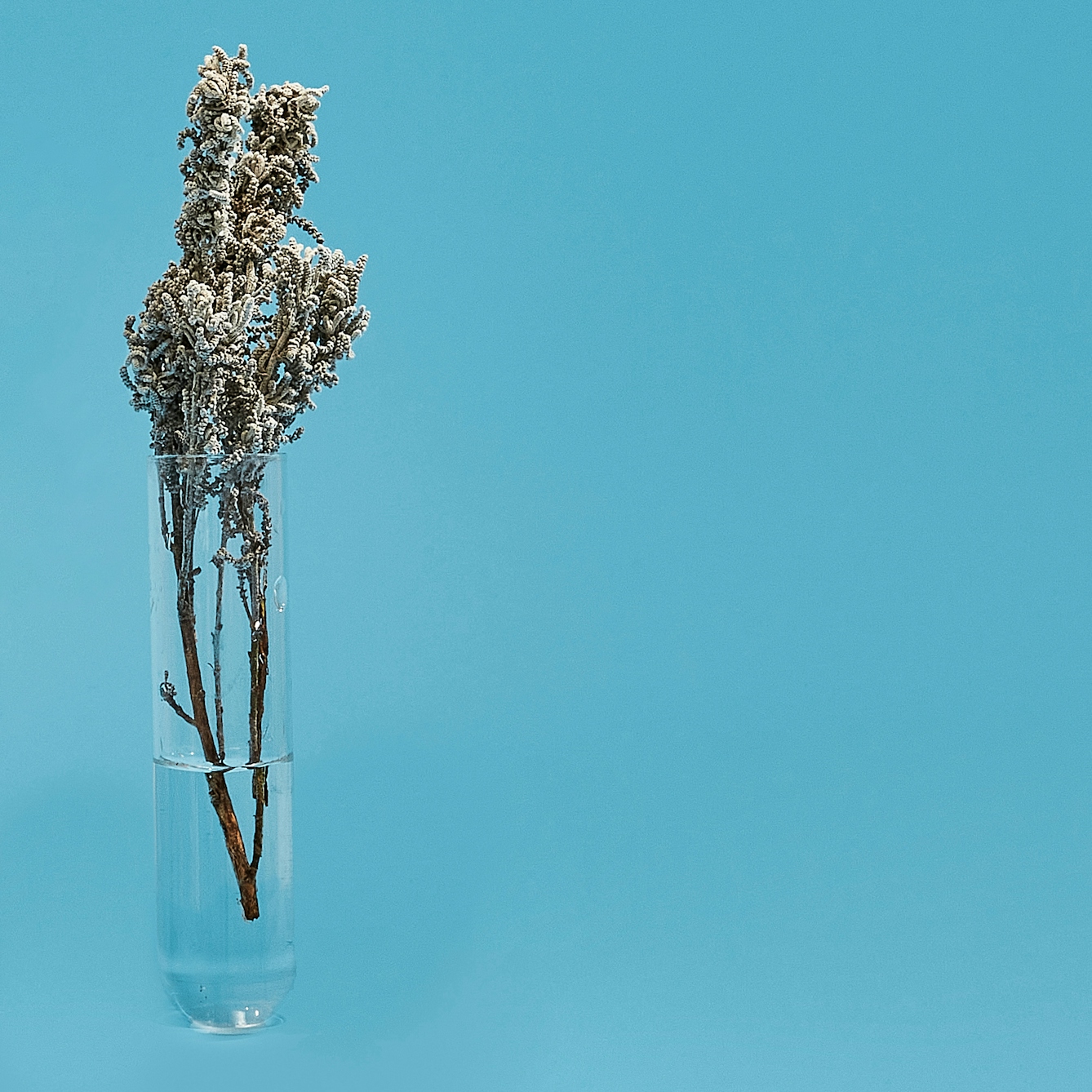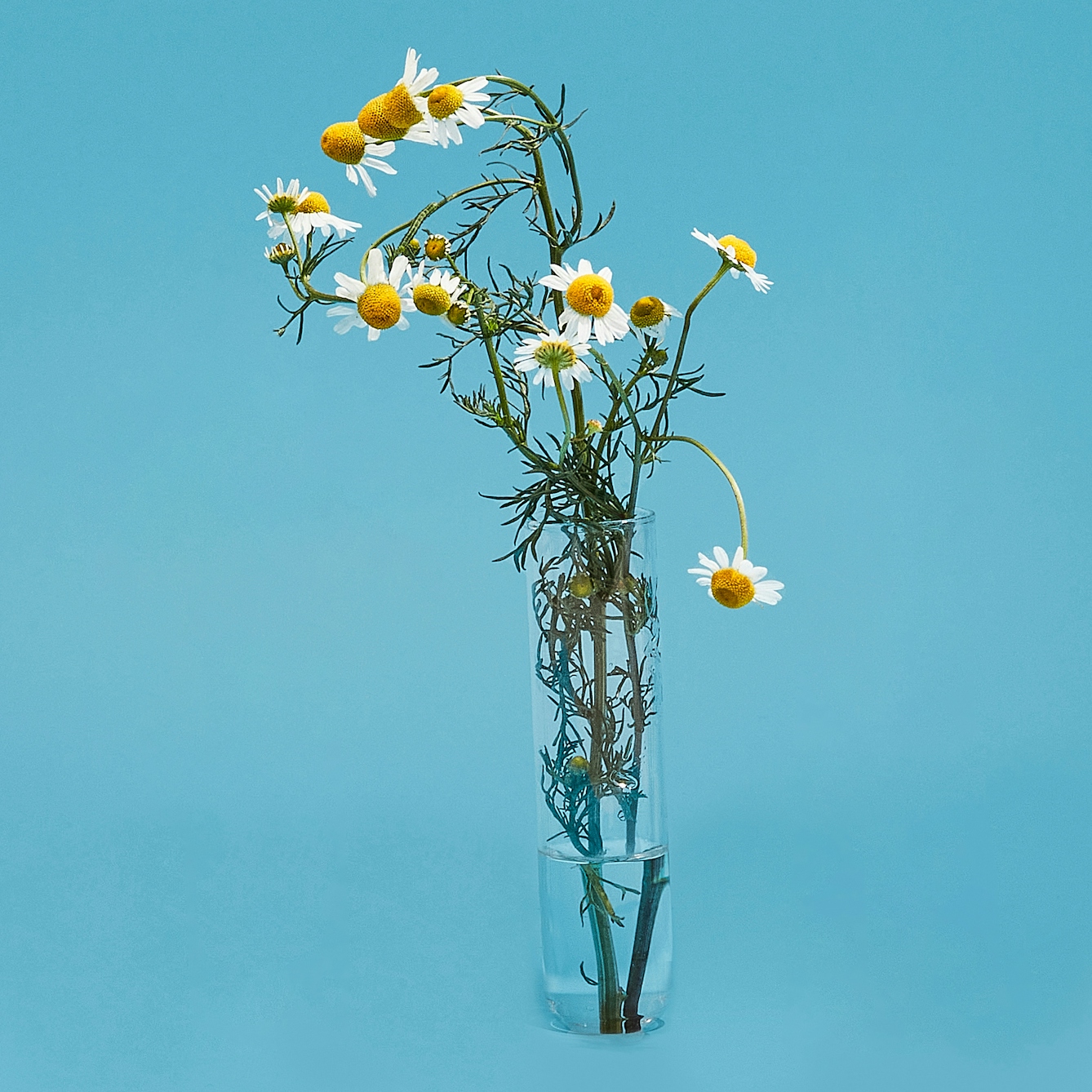In Poland, medicinal herbs hold a special place in the national psyche, and herbal teas are an extension of that. Kasia Tomasiewicz, who was born in the UK, explores her complicated relationship with her cultural history, and how herbal teas can be an expression of both love and longing.
Love, longing and tea from the polski sklep
Words by Kasia Tomasiewiczartwork by Anna Keville Joyceaverage reading time 8 minutes
- Article

I walk through the front door, and my dad exclaims, “I’ve reversed my diabetes!” I roll my eyes. Like many Poles, his greatest pleasures are high-strength alcohol and herbal infusions. Given that it was Special Brew that gave him diabetes, I quickly work out what “the cure” must have been. Drying nettles are piled high on our dinner table. Typical.
Of course, it wasn’t just the herbs. Changing his diet (and cutting out Special Brew) immeasurably improved his health. But in the six years since this moment, I’ve started to see the practice of drinking herbal tea differently. I’ve gone from cynic to cautious convert, at least with regards to their effects on the mind, if not always on the body.
Medicines may be tested, regulated and proven to be effective, but herbs occupy a dual state: neither powerful enough to be considered effective medicines, but potent enough to be treated with caution (you should always read up on herbs before you drink them). The logical conclusion is that they do something, and logic is as strong a placebo as any.
Herbal tea, under the brand names of Herbapol, Malwa, or Big-Active Zioła Mnicha, can be found in every polski sklep on every UK high street. Their purported health properties mainly come from folklore, born of times way before modern medicines.
Depression? St John’s wort, aka dziurawiec will sort you out. Brittle nails or a UTI? It’s horsetail – or skrzyp – you need. Fancy simultaneously sorting out your lung problems and reducing your anxiety? Lipa, or linden blossom, has your back. They all basically taste like varying flavours of grass. But there is subtlety there, too.
Linden is sweet, and the brewed tea bag feels like the liquid that gathers when you peel a courgette. Hawthorne is peppery. It warms your chest. St John’s wort tastes the way that hay smells. Sage makes me gag. It tastes like drinking Paxo stuffing, but apparently its antimicrobial properties make it ideal for a sore throat.

“Medicines may be tested, regulated and proven to be effective, but herbs occupy a dual state: neither powerful enough to be considered effective medicines, but potent enough to be treated with caution.”
Rejecting my Polish roots
The Polish cultural practice of herbal tea drinking stands in stark contrast with the herbal tea offerings found in English shops. Popular herbs like mint or camomile are reduced to the status of occasional caffeine-free bedtime beverages. It seems strange that in this “nation of gardeners”, medicinal herbs aren’t better known or regularly consumed, given that Britain has a long history of herbalists, like John Gerard and Nicholas Culpeper.
In English supermarkets, herbal teas cost double that of their counterparts found in polski skleps. Rather than having practical names and descriptions, they are called creepy things like Nighty Night, Energise Me or Women’s Energy. They want you to know that, by the way, they aren’t black tea, their exponentially more popular cousin. Instead, they are alternative, special – and that in buying them you are, too. Like the experience economy gone wrong, it all just feels a bit expensive and embarrassing.
When I visit my parents, I’m always offered a mieszanka or mixture of herbs from their kitchen cabinet. Presumably, the intention is that I’ll leave with no UTIs, heart problems or anxiety. It’s a holistic yet weirdly functional way of showing they care.
I used to hate this. Herbal teas take time to brew, and cups with long-stewing leaves would litter our worktops. These mysterious potions felt too eccentric, and identified us as not being ‘from here’. As a London-born ‘second-generation’ teen, I actively cultivated an image of assimilation, and herbal teas, with their weird names and flavours, didn’t fit in.
My coming of age coincided with an influx of Polish migrants and a backlash in right-wing media that said we were “rapists” and “killers” who were “swamping the NHS”. My name, with its excessive consonants, shows me to be Polish to English speakers. I would tell new acquaintances to call me “cash, like money” because ‘Kasia’, pronounced ka-sha, was too confusing.
I stopped going into polski skleps because friends thought eating sauerkraut was weird. I didn’t speak Polish because doing so meant dirty looks on the bus. And then, as time went on, I felt uncomfortable in the Polish social clubs I once called home. Every rz, dz, and ż I stumbled over felt like a guilty admission of my cultural betrayal.

“In English supermarkets, herbal teas cost double that of their counterparts found in polski skleps, and they are called creepy things like Nighty Night, Energise Me or Women’s Energy.”
Nostalgia and national character
My dad’s health, however, set off a chain of events the other way. Proximity to illness makes us realise the fragility of life, but also the tenuous connections we have to the roots we take for granted. Being a migrant means embedding yourself into the culture of the place you live, but this can come with forgetting where you come from.
Suddenly, you are 30 and have barely visited your home country in ten years. You start accepting the offers of herbal tea, and even making them yourself, because how else do you remember the family members – now gone – that you have neglected? My grandmother brought up 12 children under the shadow of war, armed only with an arsenal of camomile.
My grandfather returned from the gulag, his body ravaged by hard labour, and he relied on horsetail for his kidneys and St John’s wort to lift his mood. They knew what these herbs could do as easily as they knew how to breathe. So when I make a herbal tea, it feels like breathing with them.
The continued drinking of herbal teas for many Poles also represents a form of Ostalgie or a nostalgia rooted in, rather than necessarily for, the Soviet period (1945–89). While there is a long history of using herbs to alleviate illnesses in Poland, recent experiences of poverty during and following World War II have embedded herbal tea in the recent national psyche.
My grandmother brought up 12 children under the shadow of war, armed only with an arsenal of camomile.
After 1945, Poland struggled to rebuild itself. Not just physically, although much of it had been flattened, but emotionally too. In the immediate post-war period, medicines were difficult to obtain. In fact, everything was in short supply. Black tea was nationalised, but the quality was poor and so it had to be bought in highly prized dollars on the black market or in exclusive Pewex shops.
Herbs – with their folk-medicinal properties that required some specialist foraging knowledge and therefore community or familial co-operation – could be easily picked, swapped or bartered. In effect, they generated their own social economy, but also, in their own way, became symbols of a resistant national character – one separate from the Soviet-style communism that made paranoia commonplace and freedom unattainable, and from the capitalist Western governments and dreams that had abandoned them.

“My grandmother and grandfather knew what these herbs could do as easily as they knew how to breathe. So when I make a herbal tea, it feels like breathing with them.”
Most Poles wouldn’t wish to return to Soviet communism, a period they see as colonial, exploitative and ridden with corruption. But they would reject the predominant Western narrative that all experiences of living in the Soviet bloc were ‘backward’. The social connections generated by foraging for herbs, herbal knowledge and the reliance on family and community members or small skleps – many of which are missing from contemporary Western life – being a case in point.
The tea cornucopia in the polski sklep
If the Enlightenment was man’s attempt to demystify nature, then the shunning of herbal remedies in favour of packets and pills seems its logical end point. Some herbs form the basis of particular medicines, but herbs themselves can be as ungovernable as the landscapes they grow in.
While the standardisation of health has brought huge advancements in society, an unfortunate byproduct has been a forgetting of herb lore. Some might say this forgetting isn’t such a problem, with medicines as a more effective modern replacement, but that’s only true if the exclusive function of herbal teas is to heal the body.
Drunk in moderation, they represent so much more. Many of us long for a deeper connection with the flora and fauna of the lands that we call home, and of the experiences of our ancestors. We just don’t know how to find them.
Your local polski sklep might seem an unlikely place to start, but next time you pass by, take a second look. Who knows, skrzyp might be the answer you’re looking for. You won’t be the only one, at least if my English friends are anything to go by, many of whom have recently converted to the church of Herbapol. They are drawn in by the sheer variety of herbal teas, their varied effects and flavours, and, crucially, the cheap prices.
These characteristics are the antithesis of the herbal-tea racket found in English supermarkets. Some may be a little apprehensive to step into polski skleps on their own to begin with, but I’ll happily be their guide. Just call it an “authentic Polish foraging course”.
About the contributors
Kasia Tomasiewicz
Kasia Tomasiewicz is a historian of 20th-century memory and museums studies. She is co-host of the ‘Cursed Objects’ podcast.
Anna Keville Joyce
Anna Keville Joyce, Food Artist and Creative Director, is originally from the USA and currently based out of Buenos Aires, Argentina, and New York City. With a background in food styling, design and anthropology, Anna has participated in a wide variety of photography, film, and installation projects worldwide, and has been featured in numerous publications and exhibitions. Her creative spark, attention to detail, and keen sense of composition has allowed her to gain a broad international client and she has the pleasure of collaborating on increasingly creative and dynamic projects.

